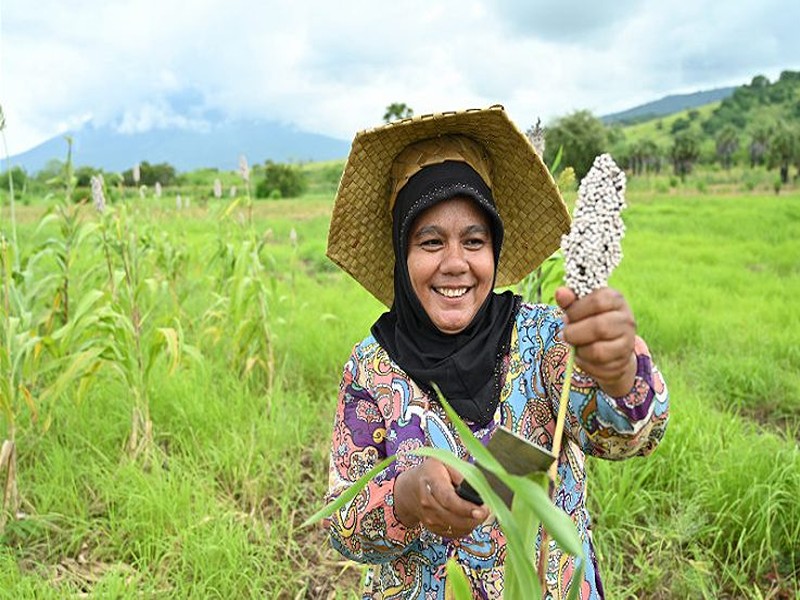KEHATI Introduces the Local Food Corridor Program by Championing Sorgum Plantation

To address this issue, KEHATI has taken the lead in introducing the local food corridor program, which promotes the integration of sorghum commodities on Flores Island, East Nusa Tenggara.
-
Date:
04 Apr 2019 -
Author:
KEHATI
In Indonesia, the rice policy implemented during the New Order era has resulted in a substantial reliance on rice while neglecting other indigenous food sources, specifically sorghum, sago, tubers, and similar crops.
To address this issue, KEHATI has taken the lead in introducing the local food corridor program, which promotes the integration of sorghum commodities on Flores Island, East Nusa Tenggara. The decision to focus on sorghum was based on its ability to flourish in marginal land conditions, its high nutritional value, and its significant cultural significance within the local community.
“The residents of Flores have been facing a significant poverty issue due to the barren and rocky nature of the land. This condition has made it challenging for them to thrive. To combat the adverse effects of climate change, especially the rising global temperatures that pose a threat to crops like rice, Flores has implemented a local food corridor program. This program serves as an adaptation strategy to ensure food security.
A notable aspect of this program is the cultivation of sorghum, which is known for its resilience to climate change. In collaboration with a group of dedicated female sorghum farmers, KEHATI has initiated the development of the local food corridor program. This program spans various districts on Flores Island, focusing on three key locations called node points: Likotuden in the eastern region, Ende in the central region, and Lembor in the western region.”
Photographer: Feri Latief.
